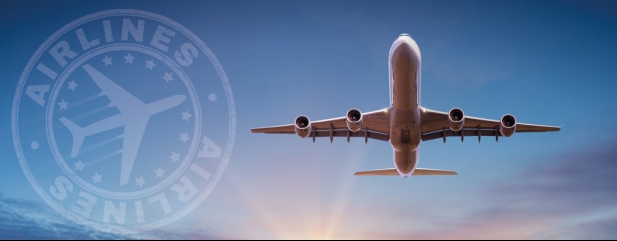Archived article
Please note that tax, investment, pension and ISA rules can change and the information and any views contained in this article may now be inaccurate.
Air travel is making a comeback: discover the best airline shares to invest in

There has been a string of good news from across the airline sector of late. Budget airline EasyJet (EZJ) said in its latest set of quarterly results that its package holiday arm is currently 80% sold for summer 2023, British Airways owner International Consolidated Airlines (IAG) said it expects capacity to be around 97% of levels pre-pandemic and airline and holidays group Jet2 (JET2: AIM) has increased its fleet capacity due to strong passenger demand by one million seats for summer travel.
IAG, Jet2 and easyJet have all beaten market expectations in the first quarter of the year and raised their guidance for the full year.
Anglo-German tour operator TUI (TUI) said that 2.4 million customers booked holidays in the second quarter of this year – an increase of 600,000 customers compared to last year.
‘Bookings for summer 2023 are significantly up at 13% on prior year accompanied by higher average selling prices,’ it said.
PENT UP DEMAND
It would be fair to say that these airlines and other European airlines are continuing to benefit from pent up demand because of the pandemic.
Bank of America said in a research note: ‘Air France-KLM (AF:EPA) in its 1Q earnings call highlighted strong yields (above 20%), helped by high load factors and noted an acceleration in yields into summer.’
According to the International Air Transport Association (IATA) total traffic in March 2023 (measured in revenue passenger kilometres or RPKs) rose 52.4% compared to March 2022. Globally, traffic is now at 88% of March 2019 levels.
Heathrow airport reported a year-on-year rise in passenger numbers in April to 6,398,870 compared to 5,081,426 last year (excluding passenger numbers from Gatwick, Stansted, Edinburgh, Naples, Aberdeen, Glasgow and Southampton).
What is a load factor?
This is the percentage of available seating capacity which has been filled with passengers.
LOWER FUEL COSTS
Aside from demand, airlines have also benefited from lower fuel costs in the first quarter of 2023.
This is a stark contrast to the start of 2022 when the price of jet fuel increased by approximately 90% and cost roughly 120% more, on average, than it did in 2021. This price increase presented a significant challenge for airlines as fuel is often the largest operating cost, accounting for around 25% of total costs depending on the year, according to consulting firm McKinsey.
As of 12 May 2023, the average annual price of Brent crude oil is $74 per barrel. A far cry from March 2022 when the Russian invasion of Ukraine disrupted global crude flows causing prices to soar.
Although the Brent crude oil price has fallen since peak levels last year, fuel prices remain an issue, according to Gerald Khoo analyst at Liberum: ‘Fuel prices remain volatile, and our outer year forecasts are theoretically more sensitive with much lower (or no) hedging cover in place.’
Interestingly Khoo notes that the supply chain issues which have dogged the sector are leading to a more disciplined approach to pricing. He says: ‘Lower fuel prices would normally stimulate incremental capacity, eroding the strength in average fares. However, there are widespread supply chain bottlenecks including manufacturer delivery delays (with production rates of most aircraft types still below pre-pandemic levels), staff shortages and reduced availability of spare parts. These are limiting the airline industry’s normal propensity for self-destructive behaviour and enforcing disciplined capacity growth. These factors underpin our optimistic outlook.’
HOW HAVE DIFFERENT UK AIRLINE STOCKS PERFORMED
Over the past five years the only UK airline which has performed anywhere close to the level of the MSCI World index, delivering a 42.3% total return compared to 53.8% from this benchmark is Jet2.
Jet2’s strategy of keeping its customers happy over the years has paid off as it is the only UK airline to receive the coveted Recommended Provider 2023 badge from consumer champion Which?
Jet2 recently upgraded its full-year guidance to a range of £387 million to £392 million, covering the 12 months to end of 31 March 2023.
The company has also overtaken TUI to become the UK’s largest tour operator. According to the latest Air Travel Organisers’ Licensing scheme (ATOL) data published by the Civil Aviation Authority (CAA), Jet2 has increased its licence for 2023 by over 500,000 and is now licensed to carry 5.8 million passengers, over half a million more than TUI, which has a licence for 5.3 million passengers.
International Consolidated Airlines includes British Airways, Spanish carrier Iberia and Vueling, and has seen a fall of 57.5% over a five-year period compared to the MSCI World index. It was particularly vulnerable to a Covid-inspired fall in business-related travel as it relied on people jetting off to meetings across the Atlantic for a considerable chunk of its revenue.
DEBT PROBLEMS WEIGH ON TUI AND EASYJET
Both EasyJet and TUI shares have seen a 62.5% and 91.2% fall over the five-year period compared to the MSCI World Index.
This is understandable due to the pandemic which put both companies balance sheets under significant strain and prompted big, dilutive fundraisings.
During the pandemic TUI received state aid from the German government which they recently announced has been paid back with the help of a €1.8 billion rights issue.
Over the past six months, EasyJet’s share price has recovered slightly up over 20% due to a series of broker upgrades.
In April, EasyJet reported an 80% rise in group revenue to £2.7 billion for the six months ending 31 March 2023 compared to £1.5 billion in the same period last year.
EasyJet also benefits from a holiday arm which enjoyed strong UK demand, and the budget airline is further upgrading its growth expectations to circa 60% year-on-year from 50% previously.
WHAT NEXT FOR THE AIRLINE INDUSTRY?
No doubt in the near-term fuel price volatility, strikes and rising inflation, particularly in the UK might affect airline stocks.
However, there is no denying demand is strong. Consumers seem willing and able to pay higher prices for their summer or winter holidays to escape doom and gloom but how long for?
The Bank of England has recently warned that high inflation could last longer than expected, if this is the case, consumers might rethink their holiday spending.
In the long-term carbon emissions will prove to be an issue for the airline industry, and investors can expect to see a scramble by airlines to cut their carbon footprint.
Some European airlines like Air France-KLM (AF.PA) have already begun re-evaluating their approach in this area by setting themselves ambitious targets for the use of sustainable aviation fuels.
AIRLINES TO BUY
Jet2 (JET2:AIM)
Package holiday and budget airline Jet2 has been the star of the sector over the last few years in part due to its fair treatment of customers during the pandemic and it has reached a market leading position in the UK off the back of this.
Any concern investors have missed the boat should be dispelled by an undemanding price to earnings ratio of 8.5 times and we think it can maintain its recent momentum as it continues to take market share.
Damian Brewer, analyst at Canaccord, says: ‘Jet2 bookings have strengthened, and average load factors are now slightly ahead of Winter 2018/19 (at the same point) on 24% more seat capacity and achieved pricing and margins looking significantly higher. We anticipate that the confidence and loyalty built will pay back in 2023’s tougher market as Jet2 takes market share with its focus on all-inclusive holidays with ‘Customer First’ service.’
International Consolidated Airlines (IAG)
An improving picture on fuel prices and recovering demand should help support International Consolidated Airlines’ share price. The stock trades on a price to earnings ratio of 6.7 times and earnings are expected to bounce back strongly in 2023 and 2024. As the company’s elevated level of fixed costs means even modest increases in revenue can result in a big increase in earnings per share.
Olly Anibaba, analyst at research outfit Third Bridge has not lost faith in the group and believes British Airways will be the ‘best-performing airline within the IAG group this year with trans-Atlantic travel driving revenue growth.
‘The reopening of the Chinese and Japanese markets, coupled with high demand for premium leisure and corporate travel between the US and UK, bodes well for the airline.
‘Iberia sees good opportunities in their North and Latin America markets due to the strong dollar. The recovery of corporate travel in Spain and Latin America is essential for their growth. The acquisition of Air Europa consolidates market position in Spain and improves their competitive positioning against big groups such as Air France-KLM and Lufthansa (LHA:DE),’ adds Anibaba.
Important information:
These articles are provided by Shares magazine which is published by AJ Bell Media, a part of AJ Bell. Shares is not written by AJ Bell.
Shares is provided for your general information and use and is not a personal recommendation to invest. It is not intended to be relied upon by you in making or not making any investment decisions. The investments referred to in these articles will not be suitable for all investors. If in doubt please seek appropriate independent financial advice.
Investors acting on the information in these articles do so at their own risk and AJ Bell Media and its staff do not accept liability for losses suffered by investors as a result of their investment decisions.
Issue contents
Feature
Great Ideas
News
- New Vodafone CEO takes no-nonsense approach but it will be enough to win over investors?
- Why bond and equity investors are pricing in very different futures
- End nears for Purplebricks’ life as a public company after Strike’s £1 bid
- Are private equity investors turning cold on UK companies?
- Richemont on the rise as China reopening boosts shares
 magazine
magazine








